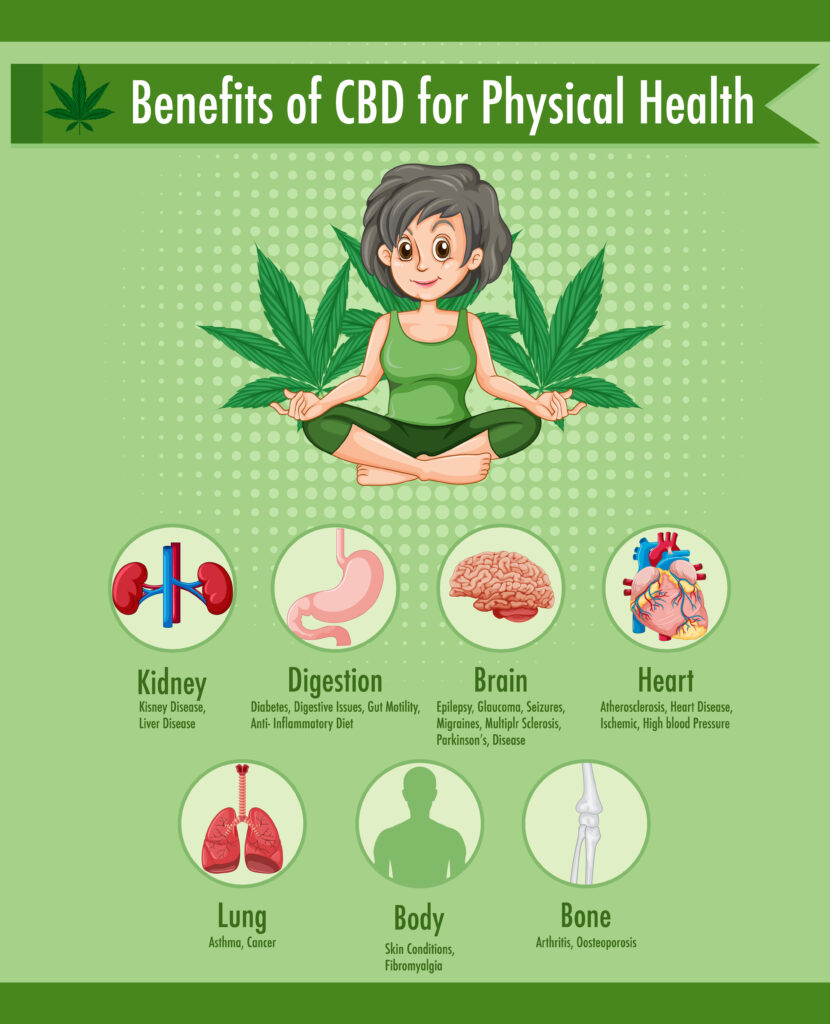How CBD Interacts with the Endocannabinoid System: A Deep Dive into Natural Balance
Table of Contents
cbd roll on for pain (cannabidiol) has taken the wellness world by storm 🌿 — from oils and gummies to topical creams, it’s everywhere. But how does it actually work in our bodies? The answer lies in understanding how CBD interacts with the endocannabinoid system (ECS) — a complex network that plays a crucial role in maintaining balance in our physiological functions.
What is the Endocannabinoid System (ECS)?

The endocannabinoid system is a biological system found in all vertebrates, including humans and pets. It consists of:
- Endocannabinoids: Naturally occurring cannabinoids in the body like anandamide and 2-AG.
- Receptors: Mainly CB1 (found in the brain and nervous system) and CB2 (found in the immune system).
- Enzymes: Responsible for breaking down endocannabinoids once they’ve done their job.
The ECS plays a major role in regulating:
- Sleep
- Mood
- Appetite
- Immune response
- Pain perception
- Memory
Its primary goal is to keep the body in a state of homeostasis — or internal balance ⚖️.
How CBD Interacts with the Endocannabinoid System

Unlike THC, which directly binds to CB1 receptors and causes a “high,” CBD interacts with the endocannabinoid system in a more indirect, subtle way:
1. Modulates Receptor Activity
CBD doesn’t bind directly to CB1 or CB2 receptors but influences them by modifying how other cannabinoids interact. This is why CBD doesn’t produce psychoactive effects but still helps in mood regulation and pain relief.
2. Inhibits Enzymes
CBD inhibits FAAH (fatty acid amide hydrolase), the enzyme that breaks down anandamide — often called the “bliss molecule.” This results in higher levels of anandamide, improving mood and reducing anxiety 🌈.
3. Stimulates Other Receptors
CBD interacts with receptors outside the ECS, like serotonin and vanilloid receptors, which may affect pain perception and inflammation. This broad receptor activity helps CBD promote calmness and reduce stress.
Benefits of CBD through ECS Interaction
Thanks to how CBD interacts with the endocannabinoid system, many users experience the following benefits:
- Pain Relief: CBD may reduce inflammation and alleviate chronic pain by modulating receptor signaling.
- Anxiety & Stress Reduction: Boosting anandamide levels and regulating cortisol levels can lead to improved mental well-being.
- Better Sleep 😴: CBD may help relax the nervous system and encourage restful sleep by stabilizing the ECS.
- Support for Immune Health: By influencing CB2 receptors, CBD may balance immune responses — a key function of the ECS.
Is CBD Safe?
Most research suggests that CBD is safe and well-tolerated, with minor side effects like dry mouth or fatigue. However, it can interact with some medications, so it’s best to consult with a healthcare provider — especially if you’re using prescription drugs.
Final Thoughts
Understanding how CBD interacts with the endocannabinoid system helps explain why this plant compound is so widely praised. It’s not just a trend — it’s science-backed and rooted in our own biology. Whether you’re using it for anxiety, sleep, pain, or general wellness, CBD works by encouraging your body’s own systems to function optimally 🌿💚.
5 Frequently Asked Questions (FAQ)
1. Can CBD get you high?
No. CBD is non-psychoactive and doesn’t bind directly to CB1 receptors like THC does.
2. How long does it take for CBD to work?
It depends on the method — oils and tinctures may work within 30 minutes, while edibles can take up to 2 hours.
3. Is the endocannabinoid system only found in humans?
No, all mammals — including dogs and cats — have an ECS, which is why CBD pet products exist.
4. How does CBD affect anxiety?
By influencing serotonin receptors and increasing anandamide levels, CBD may promote a calming effect on the nervous system.
5. Is there scientific proof behind CBD’s effects on the ECS?
Yes. Numerous studies have shown how CBD interacts with ECS components and influences receptor activity and enzyme inhibition.







